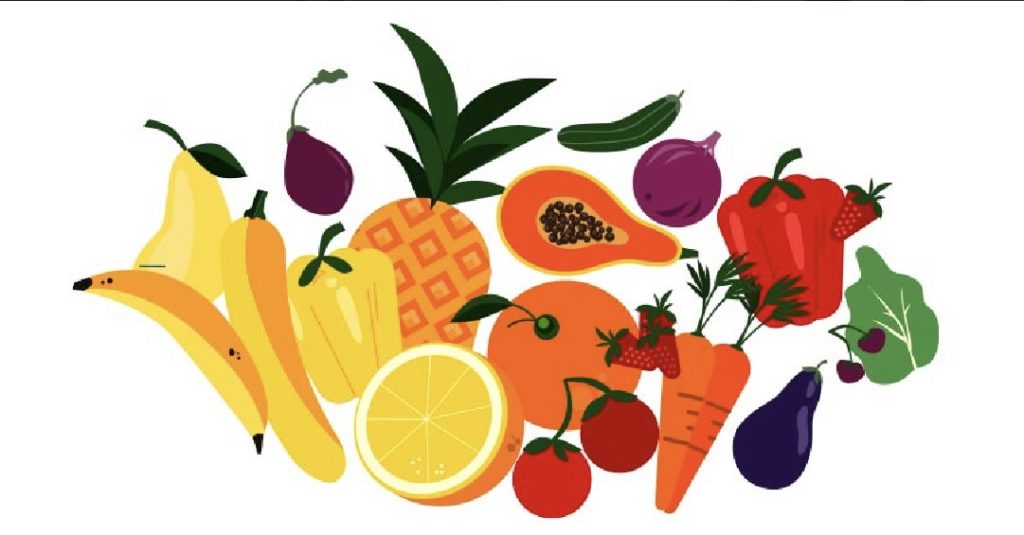7 Benefits of Eating Seasonal Produce: Why You Should Shop Local this Summer
By Nmami Agarwal 14-Apr 2023 Reading Time: 7 Mins

Every season boasts of a unique variety of fruits and vegetables. For example, apples are more of a winter fruit while summer is famous for mangoes. Oranges and grapes are for spring. Fresh green peas are seen in abundance during winter months.
But with the advancement in technology, transport and storage, many of these farm produce are available throughout the year. Peas in the form of frozen peas are available throughout the year. Gooseberries, apples, and watermelons are available throughout the year.
Not only the local fruits, we have varieties of apples available in the market now – Washington apples, fuji apples, delicious and so on.
So do these imported varieties of fruits and vegetables give any nutritional benefit? Should we consume this or stick with locally grown and seasonal foods? This article tries to answer the question.
- Nutritional value
Have you ever tried plucking a fruit out of the tree and eating it? How is the taste Vs buying from a supermarket? Eating a fruit or vegetable that has been freshly harvested is packed with not only the taste, juiciness and texture but also with loads of nutrients.
Nutrients like vitamin C, some B vitamins like folate are sensitive to oxidation. Longer duration of exposure can lead to these sensitive nutrients being destroyed and unavailable to our body. Hence the greater the time, the food is in storage, the nutritional value will be less.
- Health benefits (immunity & gut health)
With the change in season, our body also tries to adjust with the change in temperature, humidity and the viral/bacterial load in the environment.
To adapt to these changes, we need to consume phytonutrients and micronutrients required to boost our immunity. Nature provides us with these nutrients in the form of seasonal produce like melons, mangoes, grapes, strawberries, green peas, sweet potato, goose berries etc.
Consuming locally grown and seasonal produce help to provide the required nutrition to fight the diseases and also add good bacteria to our gut thereby preventing constipation or seasonal diarrhea.
- Lighter on the pocket
Compare the cost of Shimla apples in December Vs Those available in March. There is a big difference. When farmers are harvesting a large abundance of produce due to the crop being in season, the cost of the produce will go down.
Also, traveling expenses and storage are not required therefore reducing the production costs that are usually passed onto the consumer
It makes sense to buy seasonal produce since they are cheaper, tastier and nutritious than the unseasonal ones.
- Benefits the farmers
Purchasing locally grown foods helps support local farms. When we buy directly from farmers, we have the opportunity to ask what practices they use to raise and harvest the crops. It gives more confidence that we are consuming the right kind of food.
Eating seasonally reduces the demand for out of season produce which further supports more local produce and supports local farming in our area which means less transportation, less refrigeration, less hot houses, and less irradiation of produce.
- Avoids contamination
Many places can be overseas or from different parts of the country, due to demand for that particular farm produce, a lot of chemicals are being sprayed to prevent or delay ripening/ to look attractive or even to prevent spoilage. This is true for unseasonal fruits and vegetables.
Consuming such products can lead to abdominal discomfort, allergies, respiratory problems etc.
When produce is in season, cheaper and often on sale it’s a great time to buy in bulk for ourself and preserve, pickle, ferment, freeze and store our own food at home.
- Benefits the environment
Eating seasonal foods contributes to the sustainability of the food system because it reduces the energy consumption and generates less carbon dioxide emissions since it is not necessary to transport it from distant places where it is cultivated.
With less of a carbon footprint, locally sourced produce is more sustainable and creates a smaller environmental impact.
- Ritucharya – relates to our ancient way of eating
Ritu means season and ‘charya’ means guidelines or regimen. Ayurveda promotes changing diet as per season. As per Ayurveda, people do not know or ignore the suitable types of food stuffs, dressing, and other regimen to be followed in particular season. This leads to derangement of homeostasis and causes various diseases, such as obesity, diabetes, hypertension, cancer, and so on.
Hence it is important to change our diet and lifestyle to suite the season and embrace those farm produce which are locally grown and are in season.





















